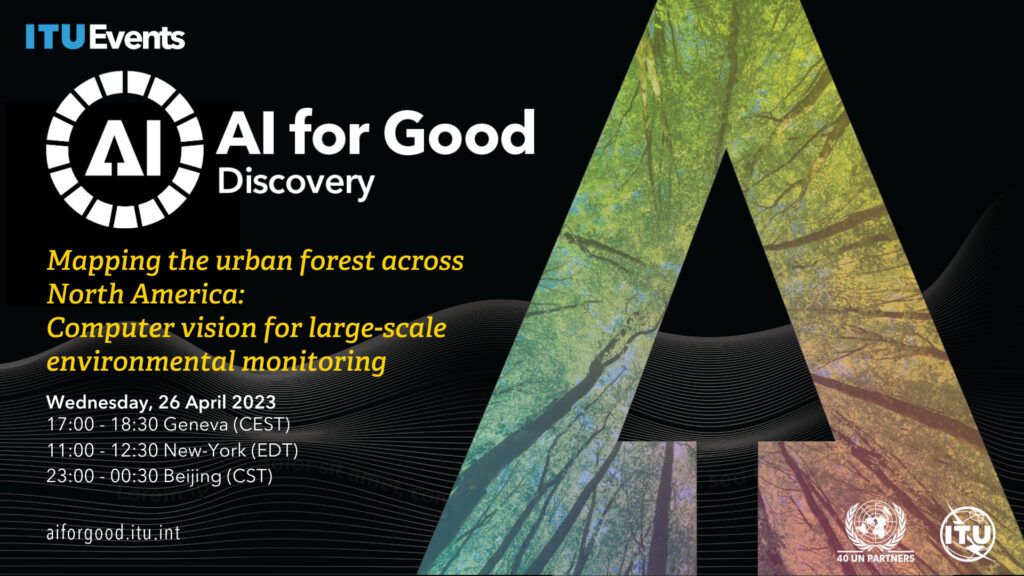A useful learning and networking opportunity for anyone interested in climate tech: The Mapping the urban forest across North America: A case study in Computer vision for large-scale environmental monitoring free webinar on April 26.
Generalization to novel domains is a fundamental challenge for computer vision. Near-perfect accuracy on benchmarks is common, but these models do not work as expected when deployed outside of the training distribution. To build computer vision systems that solve real-world problems at global scale, we need benchmarks that fully capture real-world complexity, including geographic domain shift, long-tailed distributions, and data noise. We propose urban forest monitoring as an ideal testbed for studying and improving upon these computer vision challenges, while working towards filling a crucial environmental and societal need. Urban forests provide significant benefits to urban societies. However, planning and maintaining these forests is expensive. One particularly costly aspect of urban forest management is monitoring the existing trees in a city: e.g., tracking tree locations, species, and health. We introduce a new large-scale dataset that joins public tree censuses from 23 cities with a large collection of street level and aerial imagery, containing over 2.5M trees and 300 genera. This benchmark enables the exploration of automated urban forest monitoring across modalities and with respect to geographic distribution shifts, vital for such a system to be deployed at-scale.
If you need help on your green job search check out our online course How to Make a Mid-Career Transition to a Green Job and career coaching service.
Alternatively, if you want to make your current job green, check out our online course Climate Literacy for Business.
Book a free 30 minute discovery chat to learn more 🙂

